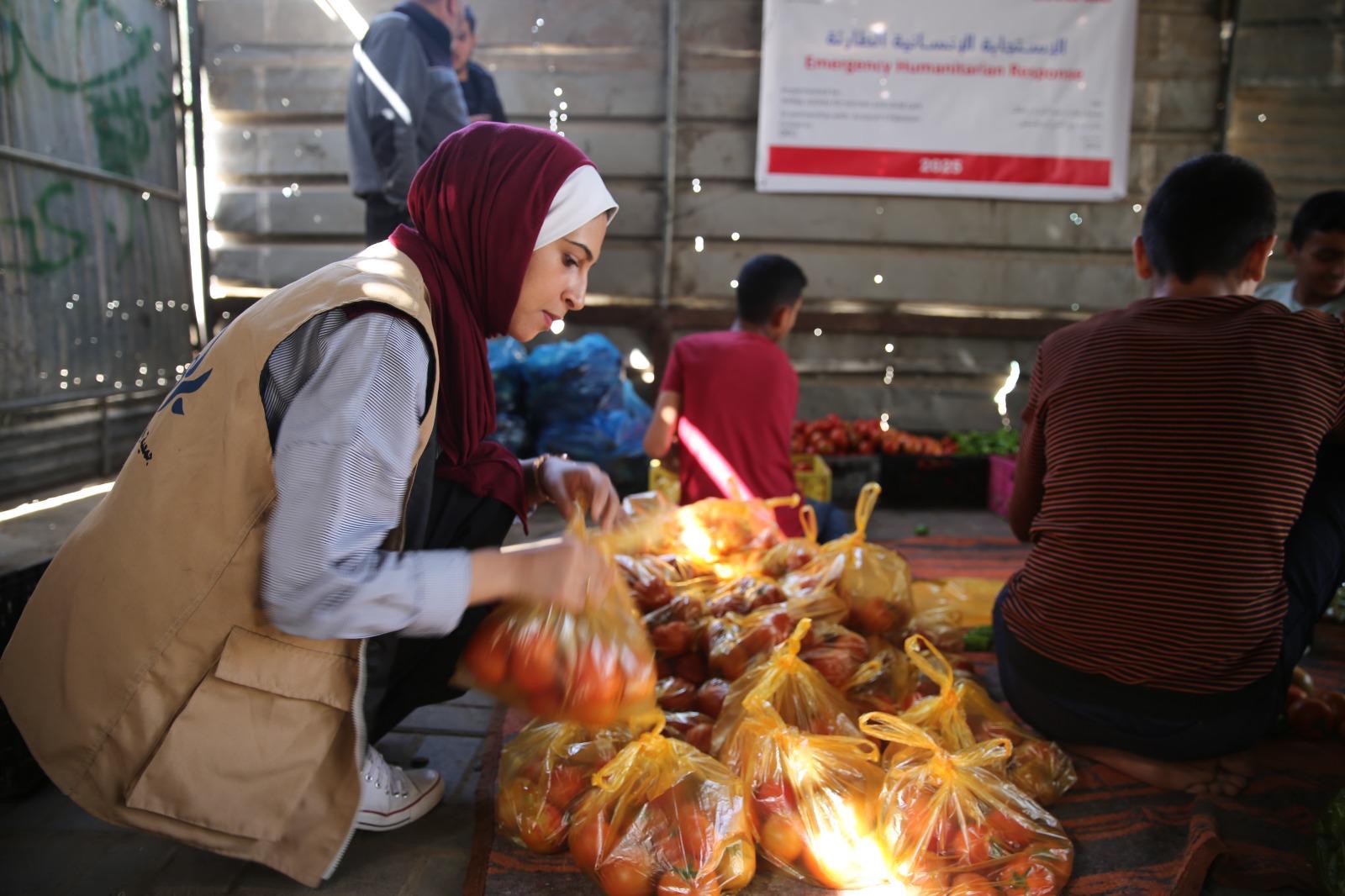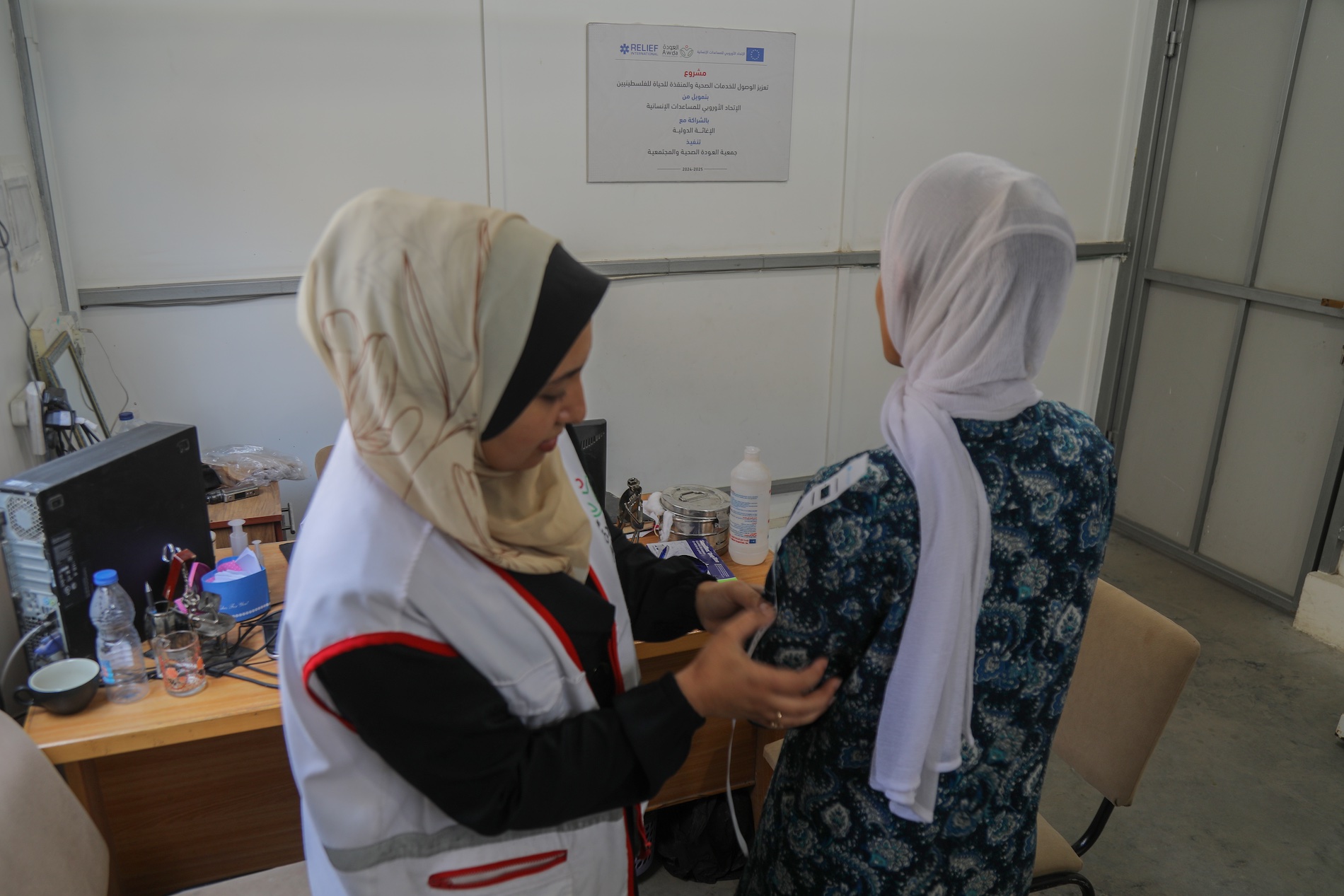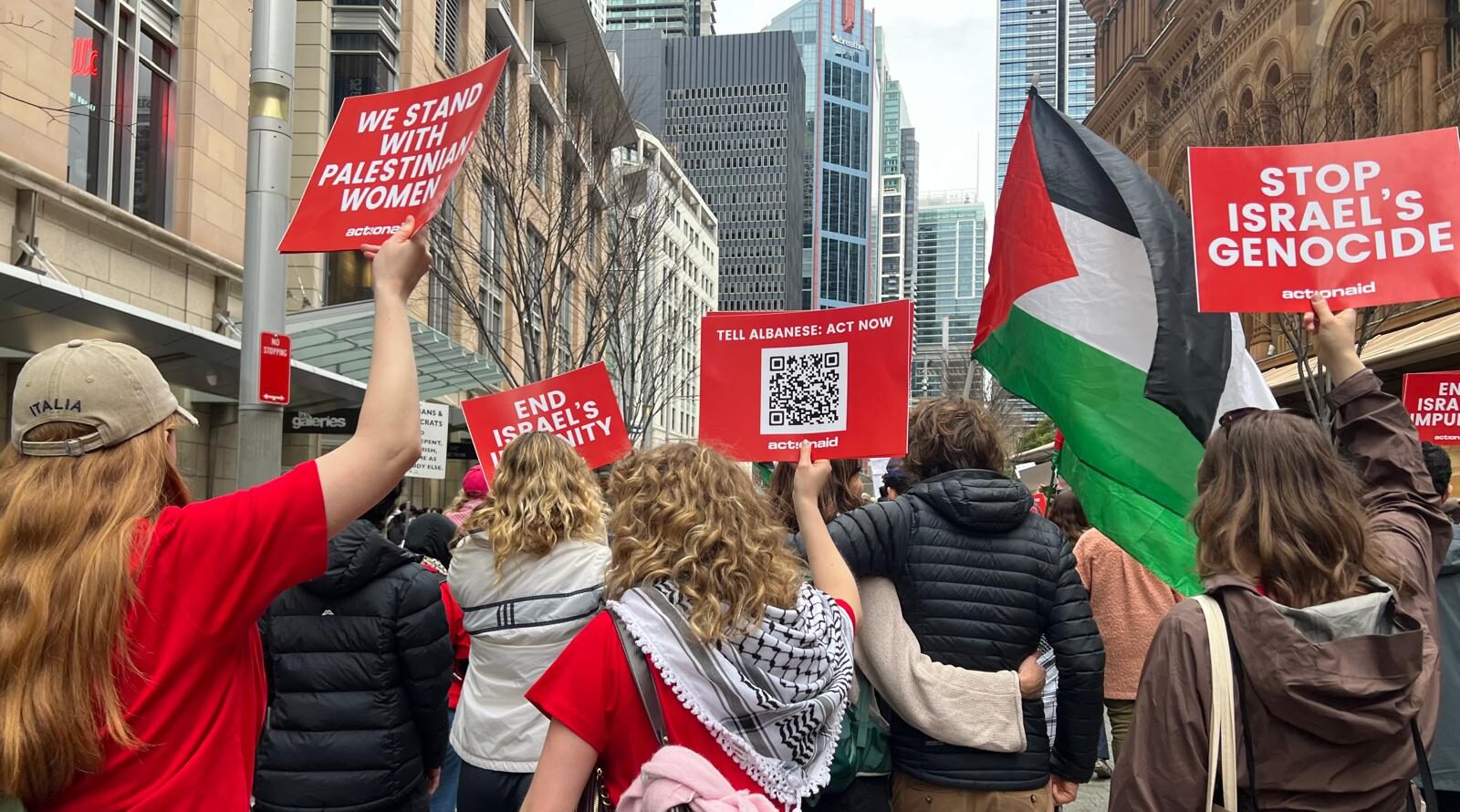ActionAid and partners have warned that famine was inevitable if the siege continued. Now, the consequences are undeniable and catastrophic. Mothers are being forced to feed their babies with unsafe substitutes for milk. Children are dying from preventable causes. And entire families, including ActionAid staff and humanitarian workers, are starving.
No one spared from the starvation crisis
Faten is a Senior Project Officer for ActionAid’s partner in Gaza – WEFAQ. She recently shared with us how the devastating consequences of famine and the aid blockade are being felt by everyone, including humanitarian workers and ActionAid staff, who are unable to feed themselves and their families.
“Actually, the only food available here to me and my family right now, it’s just the bread and dukkah, which is very expensive and beyond our reach,” she said.
“We barely managed to eat more than once a day, and actually I am afraid if my little kids need to eat more after hours to find something eat. In just the past two months, I have lost 20 kilograms. My children also have lost tens of kilos and are suffering from malnutrition. My husband and and I haven’t had proper meals for three days. Actually, I’m very exhausted. I’m very tired all the time, suffering from dizziness.”
Humanitarian relief in catastrophic conditions

Despite these challenges, ActionAid is still working to support women and their families in Gaza through local partners. Getting aid is extremely challenging and restricted, as crossings remain largely closed, and even during brief openings, access is extremely limited and unpredictable. On rare occasions, a small number of goods have been brought in through UN or ICRC-facilitated convoys, but this is the exception, not the norm.
So the main way we are able to respond is by sourcing items locally within Gaza, including vegetables, clean water, and clothing. But the availability of goods is becoming more limited, prices are rising sharply, and the quality is often poor due to depleted market stocks.
What that means on the ground is our operations are now incredibly expensive and supplies are increasingly limited. But as these are the only current means of survival for many people, it’s important that we continue this work despite these challenges.
Women’s health centre re-opens
Amid the devastation, ActionAid’s partner was recently able to resume medical laboratory services at the Women’s Health Centre in Khan Younis, after a two-year suspension due to the Israeli army destroying the lab.
ㅤ
With ActionAid funding, the team at The Culture and Free Thought Association were able to establish a comprehensive health point to serve local communities with primary healthcare, as well as sexual and reproductive health services in the women’s clinic. The medical point also includes a private breastfeeding space for new mothers and their babies who are receiving services at the centre. The highly skilled and experienced medical team is currently supporting around 250 people daily with general medicine, women’s health care, wound dressing, medications, and lab tests.
ㅤ
For women who are bearing the brunt of the genocide in Gaza, we are holding onto hope as we continue to advocate for the government to take stronger action to uphold international law, allow unhindered aid access, and ensure a permanent ceasefire in Gaza.
Supporting mother’s to feed their babies

ActionAid’s partner hospital, Al-Awda Hospital in Nuseirat, has been supporting mothers who are struggling to feed their babies amid a shortage of formula. The hospital has seen a surge in malnutrition cases in recent months, with children presenting severe dehydration, vomiting, diarrhoea, pneumonia, skin infections, and even rare illnesses like meningitis and Guillain-Barré Syndrome.
“Mothers resort to using legume water, herbs and many alternative methods to replace infant milk … but unfortunately these alternatives have negative [effects] and catastrophic risks for these children,” says Dr. Raed Rajab Al-Baba, a pediatric and neonatology specialist at Al-Awda Hospital.
“Unfortunately these alternatives lead to severe risks and complications in children as they increase cases of gastroenteritis and food poisoning … There are also recorded cases of severe dehydration due to these methods that were used as alternatives to milk, as they are mixed with unhealthy water, polluted water.”
Al-Awda Hospital works to treat these children despite limited resources, providing available milk, nutritional supplements, and guidance to families, with the ultimate goal of restoring children’s health and giving them a chance at recovery in the face of crisis.
Campaigning for aid access

The horrifying truth is that Israel is deliberately starving the people of Gaza, by closing border crossings and blocking food from getting into Gaza. Under international humanitarian law, this is a war crime.
ActionAid Australia continues to campaign for the Australian Government to hold Israel to account for indiscriminately starving the people of Gaza, for repeatedly displacing of millions of civilians, and for blatantly violating international law.
Seeing hundreds of thousands of people mobilising across Australia last weekend for the Nationwide March for Palestine gives us hope that together, we can still push the Australian Government to do more.
We must continue to show up and keep up the pressure. The people of Palestine have faced violence for decades – we must continue to stand with them for justice.
You can join in solidarity with Palestinian women and their families by donating to our Gaza Crisis Appeal, and signing our letter to Prime Minister Albanese calling on him to take action for Gaza.